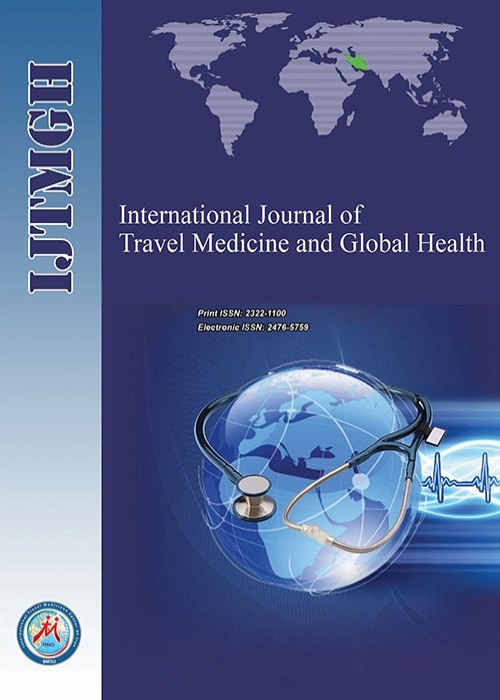Education Level and Self-rated Health in the United States: Immigrants’ Diminished Returns
Author(s):
Article Type:
Research/Original Article (دارای رتبه معتبر)
Abstract:
Introduction
Although education is among the major socioeconomic status (SES) resources that influence populations’ and individuals’ health, social marginalization may reduce the health gain that follows access to SES indicators such as education, a pattern called marginalization-related diminished return (MDR). The literature on MDRs, however, has been mainly derived from studies that have defined marginalization based on race, ethnicity, and sexual orientation. Thus, more research is needed on MDRs that may follow as a result of immigration. To extend what is known on immigration status related MDRs, this study compared a national sample of immigrants and non-immigrants for the effect of education on the poor self-rated health (SRH) of adults in the United States. Methods
With a cross-sectional design, this study employed data from the 2015 National Health Interview Survey (NHIS), a survey that had enrolled 33,654 adults who were either immigrants (n = 6225; 18.5%) or non-immigrants (n = 27 429; 81.5%). The independent variable was education level, treated as a categorical variable. The dependent variable was poor SRH treated as a dichotomous variable. Race, ethnicity, age, gender, marital status, and region were the confounders. Immigration (nativity) was the moderator. Logistic regression was used for data analysis. Results
Higher education credentials were associated with better SRH in the pooled sample; however, immigration showed a significant statistical interaction with education level (college graduation) on the outcome. This interaction was indicative of a smaller protective effect of college graduation on poor SRH among immigrants than non-immigrant adults. Conclusion
In line with the MDRs framework, the effect of education on SRH is weaker for immigrants than for non-immigrant adults. There is a need to help highly educated immigrants to mobilize their human capital to secure their best health outcomes, similar to non-immigrants. Such strategies may require bold and innovative policy solutions to reduce discrimination against immigrants, so they can more effectively translate their education and human capital into tangible outcomes such as health.Keywords:
Language:
English
Published:
International Journal of Travel Medicine and Global Health, Volume:8 Issue: 3, Summer 2020
Pages:
116 to 123
magiran.com/p2160575
دانلود و مطالعه متن این مقاله با یکی از روشهای زیر امکان پذیر است:
اشتراک شخصی
با عضویت و پرداخت آنلاین حق اشتراک یکساله به مبلغ 1,390,000ريال میتوانید 70 عنوان مطلب دانلود کنید!
اشتراک سازمانی
به کتابخانه دانشگاه یا محل کار خود پیشنهاد کنید تا اشتراک سازمانی این پایگاه را برای دسترسی نامحدود همه کاربران به متن مطالب تهیه نمایند!
توجه!
- حق عضویت دریافتی صرف حمایت از نشریات عضو و نگهداری، تکمیل و توسعه مگیران میشود.
- پرداخت حق اشتراک و دانلود مقالات اجازه بازنشر آن در سایر رسانههای چاپی و دیجیتال را به کاربر نمیدهد.
In order to view content subscription is required
Personal subscription
Subscribe magiran.com for 70 € euros via PayPal and download 70 articles during a year.
Organization subscription
Please contact us to subscribe your university or library for unlimited access!


